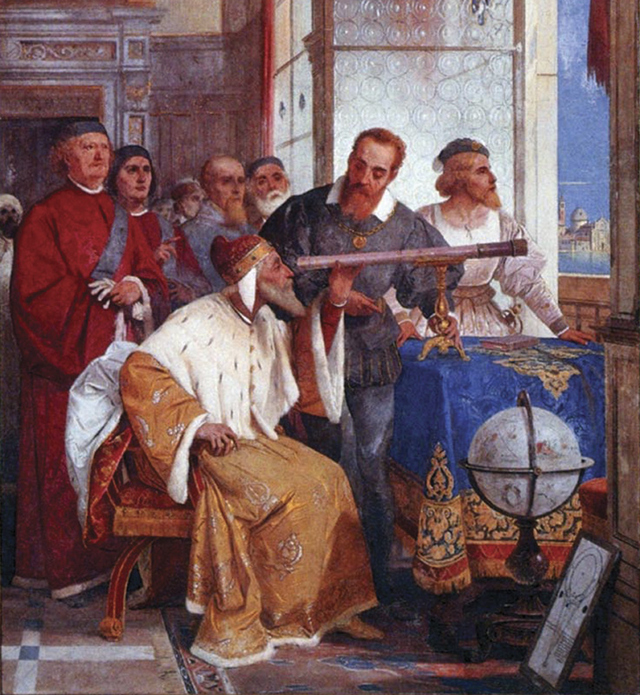
On 18 September, Pope Francis appointed Jesuit brother Guy Consolmagno as the new director of the Vatican Observatory, which employs a dozen astronomers to study asteroids, meteorites, extrasolar planets, stellar evolution, and cosmology.
The observatory is based at the pope's summer residence south of Rome and operates a 1.8-meter telescope in Arizona, where the skies are clearer.
Science Magazine chatted with Consolmagno about a variety of topics, including whether God gets in the way of doing good astronomy. Consolmagno said, "First of all, I want to provide space for other astronomers to do their work.
And I also want to show the world that religion supports astronomy. It is often religious people who most need to see that; they need to know that astronomy is wonderful and that they shouldn't be afraid of it.
I often quote John Paul II, when he said [of evolution] that "truth cannot contradict truth.
" If you think you already know everything about the world, you are not a good scientist, and if you think you know all there is to know about God, then your religious faith is at fault."
***
During most of the 16th and 17th centuries, fear of heretics spreading teachings and opinions that contradicted the Bible dominated the Catholic Church.
They persecuted scientists who formed theories the Church deemed heretical and forbade people from reading any books on those subjects by placing the books on the Index of Prohibited Books. A type of war between science and religion was in play but there would be more casualties on the side of science.
Nicholas Copernicus and Galileo Galilei were two scientists who printed books that later became banned.
 Copernicus faced no persecution
when he was alive because he died shortly after publishing his book.
Galileo, on the other hand, was tried by the Inquisition after his book
was published.
Copernicus faced no persecution
when he was alive because he died shortly after publishing his book.
Galileo, on the other hand, was tried by the Inquisition after his book
was published.Both scientists held the same theory that the Earth revolved around the sun, a theory now known to be true.
However, the Church disapproved of this theory because the Holy Scriptures state that the Earth is at the center, not the Sun it was believed.
As the contents of the Bible were taken literally, the publishing of these books proved, to the Church, that Copernicus and Galileo were sinners; they preached, through their writing, that the Bible was wrong.
ROME, Oct. 30 1992—
More than 350 years after the Roman Catholic Church condemned Galileo, Pope John Paul II is poised to rectify one of the Church's most infamous wrongs -- the persecution of the Italian astronomer and physicist for proving the Earth moves around the Sun.
With a formal statement at the Pontifical Academy of Sciences on Saturday, Vatican officials said the Pope will formally close a 13-year investigation into the Church's condemnation of Galileo in 1633. The condemnation, which forced the astronomer and physicist to recant his discoveries, led to Galileo's house arrest for eight years before his death in 1642 at the age of 77.
Galileo said, during his trial in 1633, that he did not believe what he wrote, that he let his vanity influence his words and phrasing to make him appear more intelligent to his readers but this plan failed when his readers came to the conclusion that he believed the Copernican hypothesis to be true because of his powerful phrasing.
The dispute between the Church and Galileo has long stood as one of history's great emblems of conflict between reason and dogma, science and faith.
The Vatican's formal acknowledgement of an error, moreover, is a rarity in an institution built over centuries on the belief that the Church is the final arbiter in matters of faith.
By the end of his trial, Galileo was forced to recant his own scientific findings as "abjured, cursed and detested," a renunciation that caused him great personal anguish but which saved him from being burned at the stake.
Because of his advanced years, he was permitted house arrest in Siena. Legend has it that as Galileo rose from kneeling before his inquisitors, he murmured, "e pur, si muove" -- "even so, it does move."
"We today know that Galileo was right in adopting the Copernican astronomical theory," Paul Cardinal Poupard, the head of the current investigation, said in an interview published this week.
***
The 350 year old Alchemist wish list.
No comments:
Post a Comment